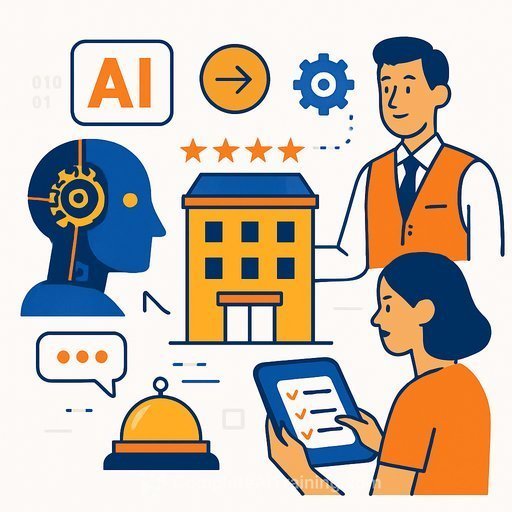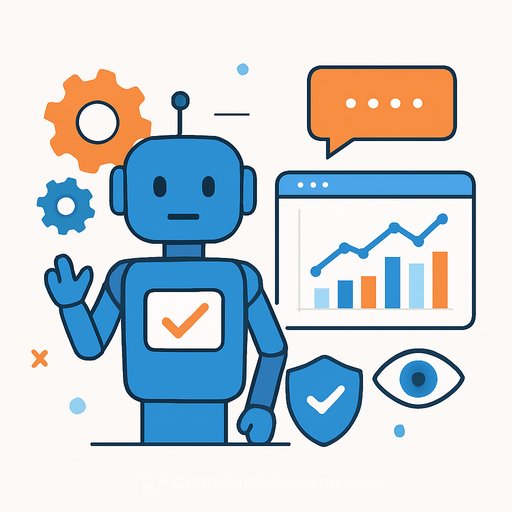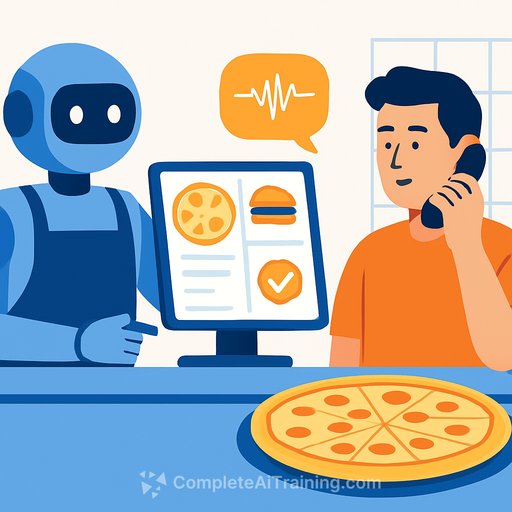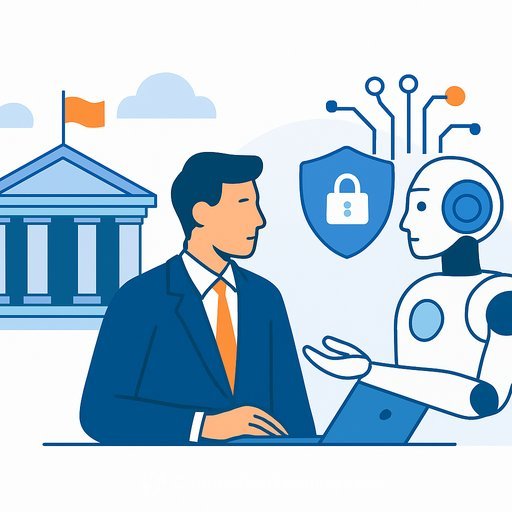From chatbots to workflows: how AI is finally solving hospitality's biggest operational headaches
Hospitality has had a checklist problem for years. Tasks that sit outside your PMS, POS or housekeeping tool pile up, slow down teams, and frustrate guests.
That's changing. AI is moving past basic chat replies to agent-driven workflows that identify the guest, take the right action in the right system, and confirm back in seconds. It's not about replacing people. It's about removing the busywork that blocks good service.
The operational black hole
Every property has a manual layer: add a rollaway, replace towels, fix the AC. These are simple, repeatable tasks that still demand time and coordination across disconnected systems.
Fragmentation is the root cause. Your PMS manages bookings. Housekeeping tracks room status. Your POS logs charges. When these tools don't talk, you get repetitive entry, missed handoffs, and slow responses. An open API helps close those gaps, and AI builds on that foundation by turning natural language requests into system actions.
From chatbot to agentic workflow
Traditional chatbots answer questions. Useful, but shallow. Agentic AI understands intent, checks context, touches the right systems, and completes the job.
Example: a guest asks for towels. The agent confirms who's speaking, checks the room, creates a housekeeping task in the correct system, and messages back with an ETA. One request, handled end to end, across voice or chat, without a front desk bottleneck.
Why this matters for operations
- Fewer swivel-chair tasks across PMS, POS, housekeeping, and maintenance
- Faster response times and clear ownership of each task
- Consistent guest updates without extra calls or messages
- Better labor allocation: teams spend time on high-value moments, not ticket triage
Guardrails and guest trust
Automation needs boundaries. Only the right data, at the right time, for the right role. Think role-based permissions, encryption, audit trails, and compliance with data protection rules such as GDPR.
Open, secure APIs matter. They create transparency and control while enabling innovation. Put simply: AI without APIs (and a clear semantic layer) doesn't work in real hotel operations.
Proven outcomes, not hype
Across D3x customers, average satisfaction for AI-handled interactions is 4.6 out of 5, compared with 4.37 for human-only ones. Guests value speed and accuracy, especially for repetitive needs.
When routine requests run themselves, your team can focus on moments that require empathy, judgment, and local knowledge. Service improves because attention is no longer spread thin.
What connected operations looks like
In a connected model, your PMS sits at the center. Specialized tools plug in via open APIs. AI orchestrates actions across them based on plain-language requests.
Late checkout? The agent checks availability in the PMS, updates the booking, alerts housekeeping, and confirms with the guest. Broken lamp? It logs maintenance, routes the task, tracks completion, and closes the loop. Simple to describe, hard to execute manually-now handled at scale.
The road ahead: deeper automation
High-friction back-office work is next. Invoice modifications can be automated end to end: authenticate the guest, void the incorrect invoice, issue a credit note, regenerate documents, and notify finance-without a pile of emails.
The principle stays the same: automate what's safe, escalate what's not, and keep the hotelier in control.
Implementation checklist for operators
- Map your top 20 repetitive requests across guest messaging, front office, housekeeping, and maintenance
- Verify your PMS and core tools expose open, well-documented APIs
- Define permissions: who can read, create, update, and delete in each system
- Connect guest channels (voice, SMS, WhatsApp, chat) to a single workflow layer
- Start with three workflows: late checkout, amenity requests, maintenance tickets
- Set SLAs, routing rules, and escalation paths for exceptions
- Track cycle time, first-contact resolution, and guest CSAT weekly
- Train staff on exception handling and handovers between AI and humans
- Review logs monthly for privacy, quality, and failure patterns
If your team needs structured upskilling in automation and AI workflows, explore focused resources here: AI courses by job.
Notes from the field
Hospitality leaders are already moving beyond chat to fully agentic workflows. It's why Mews built on open APIs from the start and brought in the DataChat team to accelerate agent-driven operations.
The direction is clear: connected intelligence, fewer manual steps, faster resolutions. Better guest outcomes with tighter operational control.
About Mews
Mews is a hospitality platform used by 12,500+ customers across 85+ countries. Mews Hospitality Cloud streamlines operations, upgrades the guest journey, and helps teams run more profitable businesses.
Customers include BWH Hotels, Strawberry, The Social Hub, and Airelles Collection. Mews was named Best PMS (2024, 2025) and listed among the Best Places to Work in Hotel Tech (2021, 2022, 2024, 2025). The company has raised $410M from investors including Growth Equity at Goldman Sachs Alternatives, Kinnevik, and Tiger Global. www.mews.com
Your membership also unlocks:






